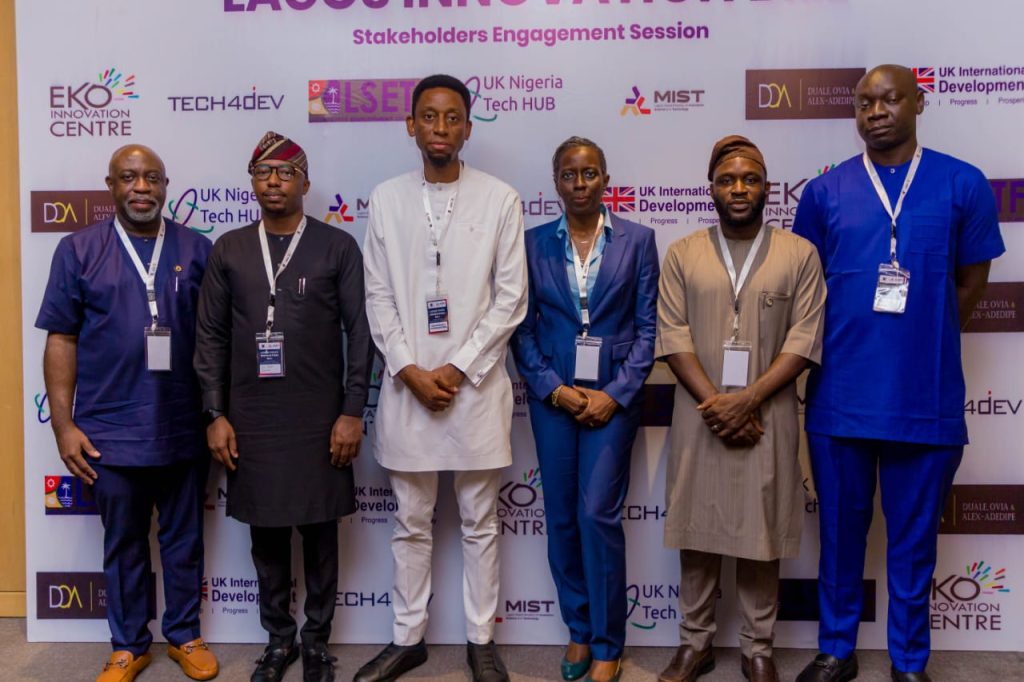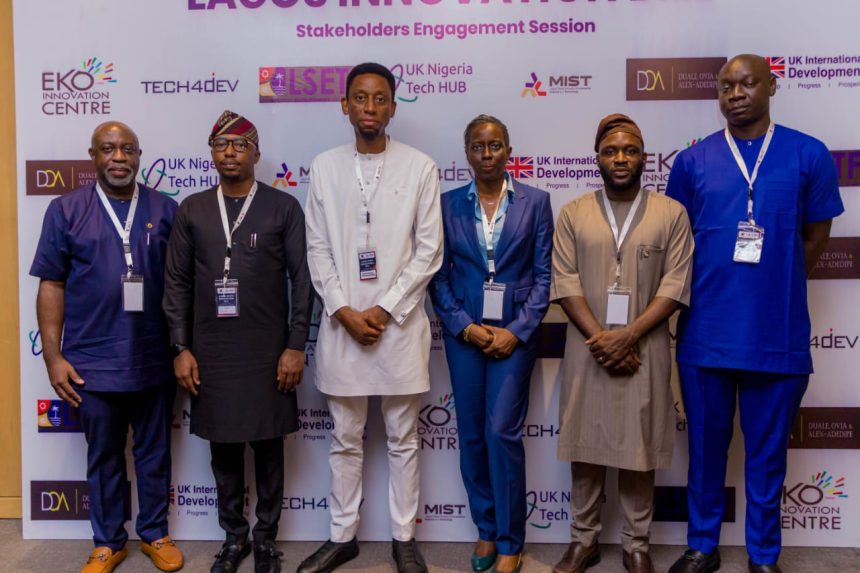Joy Agwunobi

The Lagos State Government is intensifying efforts to institutionalise innovation governance through continuous stakeholder engagement on the Lagos Innovation Bill, a proposed legislation aimed at establishing a strong legal and regulatory framework for science, technology, and innovation within the state.
Through the Ministry of Innovation, Science and Technology (MIST), the state recently convened a strategic session in Lagos with major stakeholders in the tech and innovation ecosystem. The session brought together a diverse range of participants, including entrepreneurs, researchers, policy experts, legal professionals, and innovation enablers to deliberate on the most recent draft of the bill.
This session is part of a broader, ongoing series of engagements hosted by the Ministry to collaboratively develop the Innovation Bill. The legislation is designed to serve as a comprehensive legal foundation for the growth and governance of science, technology, and innovation in Lagos.
At this latest consultation, the Ministry presented a refined version of the draft bill to key players across the ecosystem, encouraging open dialogue, critical feedback, and constructive suggestions. This inclusive approach aims to ensure the bill is not only aligned with global best practices but is also co-owned by the local innovation community it intends to serve.
Olatunbosun Alake, commissioner for innovation, science and technology, delivered the keynote address, offering both philosophical grounding and global context for the bill’s design. Referencing global innovation models such as Silicon Valley, Alake emphasised the need for Lagos to move from fragmented innovation efforts to a deliberate, systemic framework that can sustainably fuel economic and technological transformation.
“If we are serious about building an innovative economy. Then we must create systems that allow ideas to become inventions, inventions to become startups, and startups to scale into global businesses. That pipeline must be enabled by law,”Alake said.
According to him, the proposed Lagos Innovation Bill builds on the foundation laid by the Nigeria Startup Act, but expands its focus to cover the entire innovation pipeline—from universities and research institutions to digital infrastructure, innovation funding, legal frameworks, and knowledge systems.
“This bill goes beyond startups.It covers knowledge institutions, research and development, digital infrastructure, innovation funding, and the legal frameworks to protect ideas and attract investment. It is our attempt to design a Lagos-specific framework that can scale innovation and institutionalise progress,”he explained.
Alake also underlined the bill’s commitment to inclusive growth, pointing out that its design prioritises grassroots innovators, students, researchers, and underserved communities alongside established tech players.
“If innovation is to be meaningful, it must be democratised,” he stressed, adding “That means providing access, funding, training, and regulatory support to everyone—from the university researcher in Epe to the agritech startup in Ikorodu. That’s what this bill aims to do.”
Welcoming participants earlier in the session, Ibilola Kasunmu, permanent secretary of the ministry, reiterated the government’s dedication to participatory policy development and called on stakeholders to provide practical and actionable input.
“This session is not just about telling you what the bill says. It is about asking you: does this work for your context? Will this structure enable innovation, or will it stifle it?” she said.
“We believe policy must be driven by those who live in the ecosystem. You are the people who understand the bottlenecks, the regulatory frictions, and the investment gaps. That’s why we are here, not just to talk, but to listen, learn, and improve.”
Kasunmu further explained that the Innovation Bill is envisioned as a foundational law to help Lagos realise its goal of becoming Africa’s foremost innovation capital. It complements the Nigeria Startup Act at the federal level, while being tailored to the unique characteristics of Lagos’ rapidly evolving technology and knowledge economy.
Delivering a goodwill message, Joel Ogunshola, founder of Tech for Tech, applauded the Ministry’s sustained engagement efforts, describing the bill as both “visionary and timely.”
“What Lagos is trying to do with this bill is not to reinvent the wheel,” Ogunshola remarked, noting “Rather, it is to customise the wheel so that it actually works on our roads. This is not just a tech bill; it is an economic growth framework. It’s about unlocking prosperity, innovation, and talent at a scale we’ve never seen before.”
He highlighted the limitations of national policies that often fail to reflect local realities and argued that sub-national legislation is essential to bridge the gap between ambition and execution.
Ogunshola added that the bill presents a critical opportunity to enshrine legal protections and incentives that support not just startups, but also researchers, capital providers, and innovation enablers.
Closing the session, Ganiyu Oseni, the special adviser to the governor on broadband and technology, expressed the State Government’s appreciation for the active participation and high-quality feedback received from the session.
He reiterated the State Government’s commitment to ensuring that the final draft of the bill reflects the collective wisdom of the ecosystem and assured stakeholders that more engagements will follow as the bill moves closer to legislative approval.










